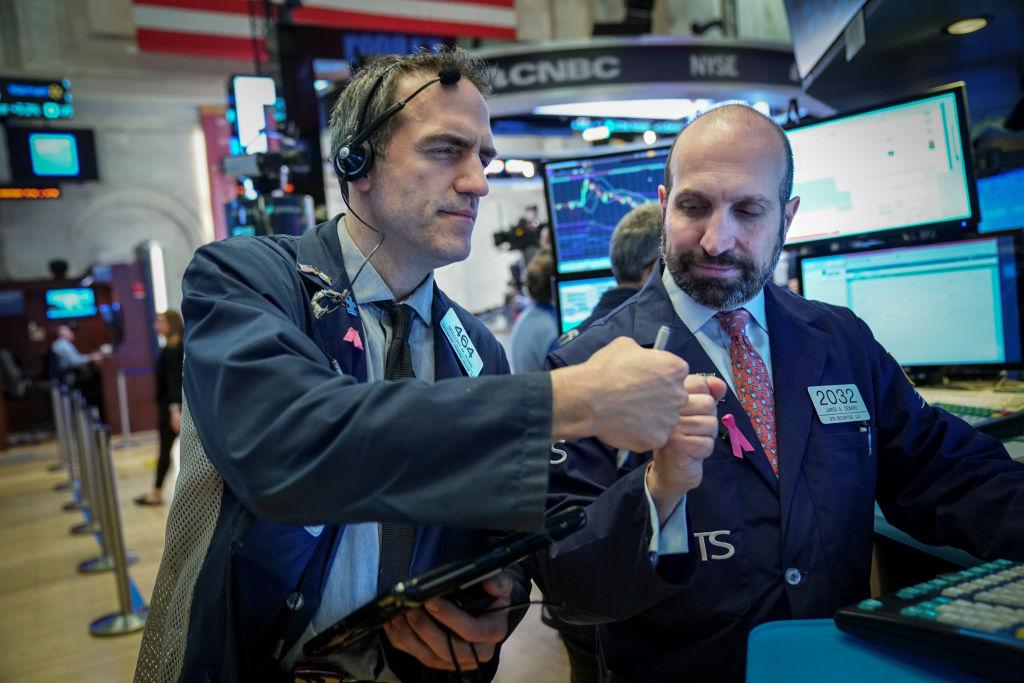U.S. stock indexes rose sharply on Monday, driven by dip-buying, bargain hunting, and on reassurances by central banks and international financial institutions that they stood ready to counter any economic impact from the coronavirus.
At 1:07 p.m. EST, the Dow Jones Industrial Average was up 2.88 percent, the S&P 500 was up 2.56 percent, and the Nasdaq Composite was up 2.55 percent.





